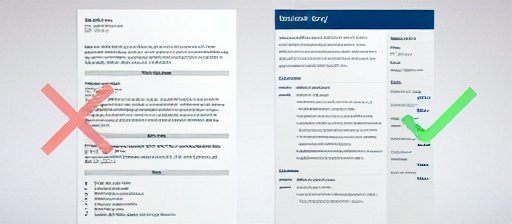Introduction
In an ever-evolving job market, part-time roles are booming in popularity across Ireland. Whether you’re a student balancing lectures, a parent looking for flexible hours, or someone simply seeking a healthier work–life balance, having a Part-time CV in Ireland-ready is essential. But how do you make sure your CV stands out among other applicants?
This guide will walk you through the best strategies to tailor your CV for part-time opportunities in Ireland. We’ll dive into the latest tips on what employers look for, how to format your CV for maximum impact, and the key details that can make all the difference in landing an interview.
1. Understand the Irish Job Market for Part-Time Roles
Before you begin crafting your Part-Time CV in Ireland, it’s crucial to understand the unique aspects of Ireland’s job market:
- Industry Demand: Ireland’s tourism, retail, and hospitality sectors often have high demand for part-time workers. Many tech companies also hire part-time staff for specialized roles.
- Geographical Factors: While Dublin offers the widest range of part-time jobs, smaller cities like Cork, Galway, and Limerick also provide opportunities in sectors like healthcare, customer service, and education.
- Work Permits and Regulations: If you’re an international job seeker, ensure you’re aware of Ireland’s visa and work-permit requirements. Demonstrating this awareness on your CV can show employers you’re prepared and compliant.
2. Choose the Right Format for a Part-Time CV in Ireland
Part-time employers often sift through dozens—or even hundreds—of applications for a single position. Hence, clarity and readability can make or break your chances. Here are a few popular CV formats to consider:
- Reverse Chronological: Start with your most recent role and move backward. This format is ideal if you have relevant, ongoing experience in your field.
- Functional (Skills-Based): Highlight key skills (e.g., customer service, digital marketing, event planning) rather than focusing on a strict career timeline. This approach works well if you’re switching from full-time to part-time, or if you have less traditional work experience.
- Combination: Merge the best of both worlds: a brief skills-based section, followed by a reverse chronological experience list.
No matter which format you choose, ensure it emphasizes your readiness for a part-time role in Ireland. Mention your availability, any relevant certifications, and the specific days or hours you can work. Employers appreciate knowing these details upfront.
3. Tailor Your Professional Summary to Part-Time Roles
Your Professional Summary (or Personal Profile) is the first impression recruiters will have of you. Make it count:
- Keep It Concise: A two- to three-sentence summary is best.
- Highlight Flexibility: Emphasize your open schedule, or the specific hours you can commit to.
- Show Enthusiasm: Communicate your genuine interest in balancing life, work, or other commitments.
Example:
“Dedicated retail associate with 2+ years of customer service experience seeking a part-time sales position in Dublin. Highly adaptable schedule, excellent interpersonal skills, and keen to contribute to a team-oriented environment.”
This approach immediately indicates you’re a serious, flexible candidate who can fit an employer’s part-time scheduling needs.
4. Focus on Relevant Skills and Experience in your Part-time CV in Ireland
For part-time jobs, employers look at skills differently than they do for a standard full-time role. They want to see that you can hit the ground running—often with minimal on-site training—and juggle responsibilities effectively. Consider these tips:
-
Include Transferable Skills
- Communication, time management, and teamwork are highly valued in Ireland’s part-time market.
- Indicate where you learned or honed these skills (e.g., extracurriculars, previous part-time roles).
-
Highlight Achievements
- Use specific metrics (e.g., boosted sales by 20%, managed a team of 5 during peak times).
- Demonstrating results helps employers envision how you’ll add value.
-
Show Cultural Fit
- Part-time employers often want team players who adapt quickly.
- If you’ve worked in fast-paced Irish retail or hospitality environments, make this known.
5. Emphasize Education and Certifications
Whether you’re a student or a professional, your educational background matters:
- Current Students: Mention your course, year of study, and any related modules that align with the job.
- Recent Graduates: Detail your degree and relevant projects.
- Additional Certifications: If you hold certifications in First Aid, HACCP (for hospitality), or digital marketing, list them to show extra qualifications for Irish employers.
Remember, even if you’re applying for a short-term or part-time role, these accomplishments can help you stand out, especially in a competitive market like Ireland.
6. The Importance of Keywords for Applicant Tracking Systems (ATS)
Many Irish employers and recruitment agencies use Applicant Tracking Systems to filter applications. Optimizing your CV with the right keywords ensures your CV isn’t automatically rejected:
- Integrate phrases like “part-time availability,” “flexible hours,” “customer service,” “team player,” and “Part-Time CV in Ireland” where appropriate.
- Ensure your skills section features both hard and soft skills relevant to the role (e.g., “POS systems, conflict resolution, inventory management”).
However, avoid “keyword stuffing.” Your CV must still read naturally and professionally to engage the hiring manager who ultimately reviews it.
7. Highlight Availability and Motivation
For part-time roles in Ireland, availability can be just as critical as experience. Be clear about:
- Days and Hours: State if you’re open to weekends, evenings, or early mornings.
- Location Flexibility: Can you travel within Dublin or Cork for shifts? Are you open to remote or hybrid setups?
- Motivation: Explain briefly why a part-time position suits your lifestyle (e.g., balancing college courses, family obligations, or freelance projects).
When employers see that your schedule aligns with their needs, they’ll be more inclined to contact you.
8. Include a Polished Cover Letter in addition to Part-time CV in Ireland
A well-written cover letter can set you apart in Ireland’s competitive part-time job market. Here’s how to make yours shine:
- Personal Touch: Address the hiring manager by name if possible.
- Reinforce Flexibility: Highlight your available hours and willingness to adapt to shift changes.
- Short and Sweet: Keep your cover letter to one page, focusing on your top selling points and enthusiasm for the role.
- Localize: Reference Ireland-specific regulations or experiences to show your knowledge of the local market.
Including a cover letter may feel optional for some positions, but it can make a difference when multiple candidates have similar backgrounds.
9. Showcase Irish References
Having references from Irish-based employers or educators can boost your credibility. If you’ve worked part-time before or volunteered locally, consider asking for a written recommendation. Including a brief mention in your CV—such as “References available upon request”—gives hiring managers added confidence in your suitability and reliability.
10. Proofread and Localize Your Part-time CV in Ireland
Finally, ensure your CV meets Ireland’s professional standards:
- Spelling and Grammar: Use UK/Irish English spelling (e.g., “organisation,” “labour”) rather than American variants.
- Format Consistency: Keep font types and sizes consistent throughout.
- Length: Aim for one or two pages, especially for part-time positions. Hiring managers in Ireland often prefer concise, directly relevant CVs.
- Contact Details: Include an Irish phone number if you have one, and consider using a professional email address that references your name.
Conclusion
 Writing an impressive Part-Time CV in Ireland is all about showcasing the right balance of flexibility, relevant skills, and genuine enthusiasm for the role. With Ireland’s dynamic part-time job market, a well-crafted CV will help you stand out and land interviews faster.
Writing an impressive Part-Time CV in Ireland is all about showcasing the right balance of flexibility, relevant skills, and genuine enthusiasm for the role. With Ireland’s dynamic part-time job market, a well-crafted CV will help you stand out and land interviews faster.
Remember, employers aren’t just looking for someone with free hours—they want someone committed and motivated to contribute to their organisation in a part-time capacity. By following the tips above, you’ll create a polished, compelling CV that resonates with Irish recruiters and employers alike.








